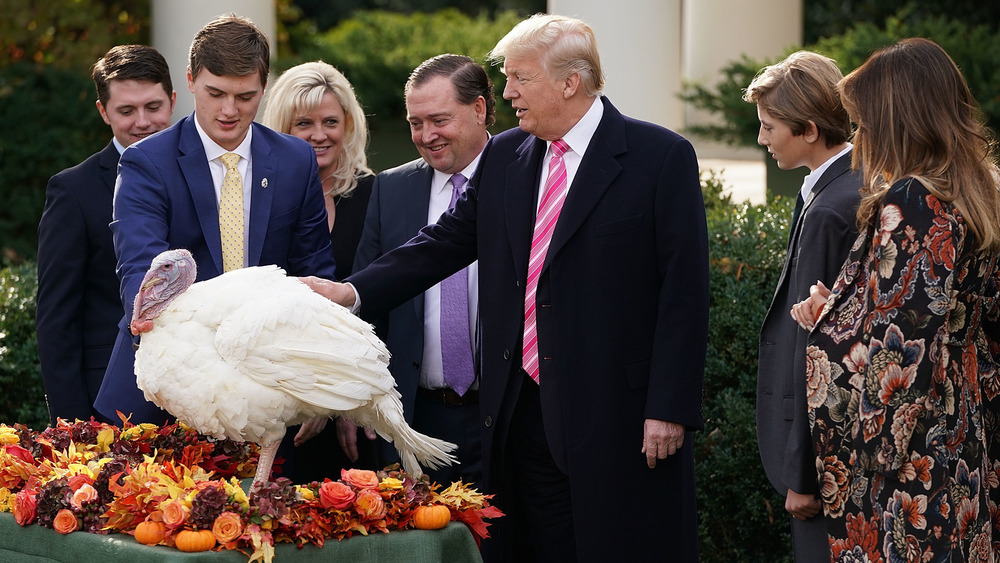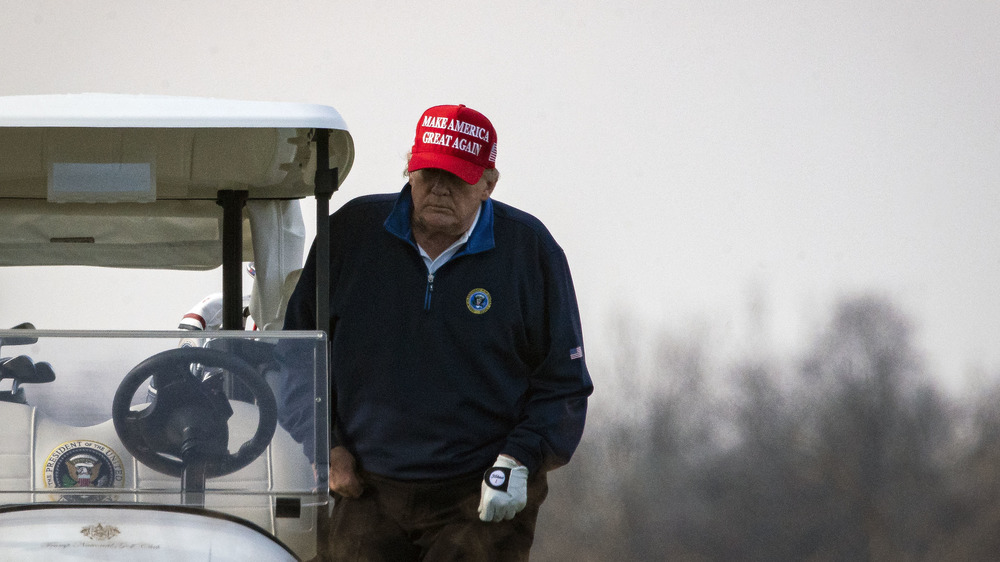Here's How Presidential Pardons Really Work
No sitting President of the United States has ever attempted to pardon himself while in office. The question on many people's lips in the final days and weeks of Donald Trump's presidency, however, is: can he?
They're not just for Thanksgiving turkeys: presidential pardons have long been a contentious practice, seeming to give a green light for close allies of a sitting President to engage in nefarious dealings with the knowledge that a get-out-of-jail-free card will be waiting for them to help them out just before their friend in power leaves office.
Presidential pardons are written into the US Constitution, and fall into a larger category of "clemency powers" which are granted to every President of the United States while they are still in office, according to the BBC. Pardons are essentially "legal forgiveness," removing convictions for federal crimes. Lesser clemency powers include "commutations," which reduce punishments, such as jail time. There are also "remissions," by which a President may reduce a person's financial penalty, and "respites," which are typically used to reduce jail time for inmates on medical grounds, although both of these are rare.
Trump has already granted a number of pardons, the most notable being that of the political consultant Roger Stone, whose jail sentence for witness tampering and lying to Congress was commuted in July. However, Pew Research notes that Trump has only granted clemency 44 times during his time in office, a fraction of the more than 2,000 times clemency was granted by Barack Obama.
Can Donald Trump pardon himself?
According to the BBC, experts are divided on exactly whether a President has the power to bestow a pardon upon themselves before leaving office, pointing to the fact that according to the justice department, President Richard Nixon (1969-74) could not pardon himself "under the fundamental rule that no-one may be a judge in his own case." They also note, however, that many political commentators have already argued that there is nothing in the US constitution that explicitly bars a President from issuing such pardons, as unusual and seemingly improper that might be. Then again, we might argue that throughout his time in office, President Trump hasn't seemed to care if his behavior has been considered improper.
The question, though, might be a non-starter. The investigation led by Robert Mueller into Russian interference in the 2016 US Presidential election which threatened to implicate Trump failed to pin any crimes on him. So for what exactly might he be pardoning himself?
Presumptive pardons do, in fact, have precedents. Gerald Ford, for example, granted a pardon to Richard Nixon for anything that might emerge that was related to the Watergate scandal, although Nixon hadn't yet received any charges. Such a move by President Trump, applied to himself, however, would certainly be seen as an admission of guilt.

